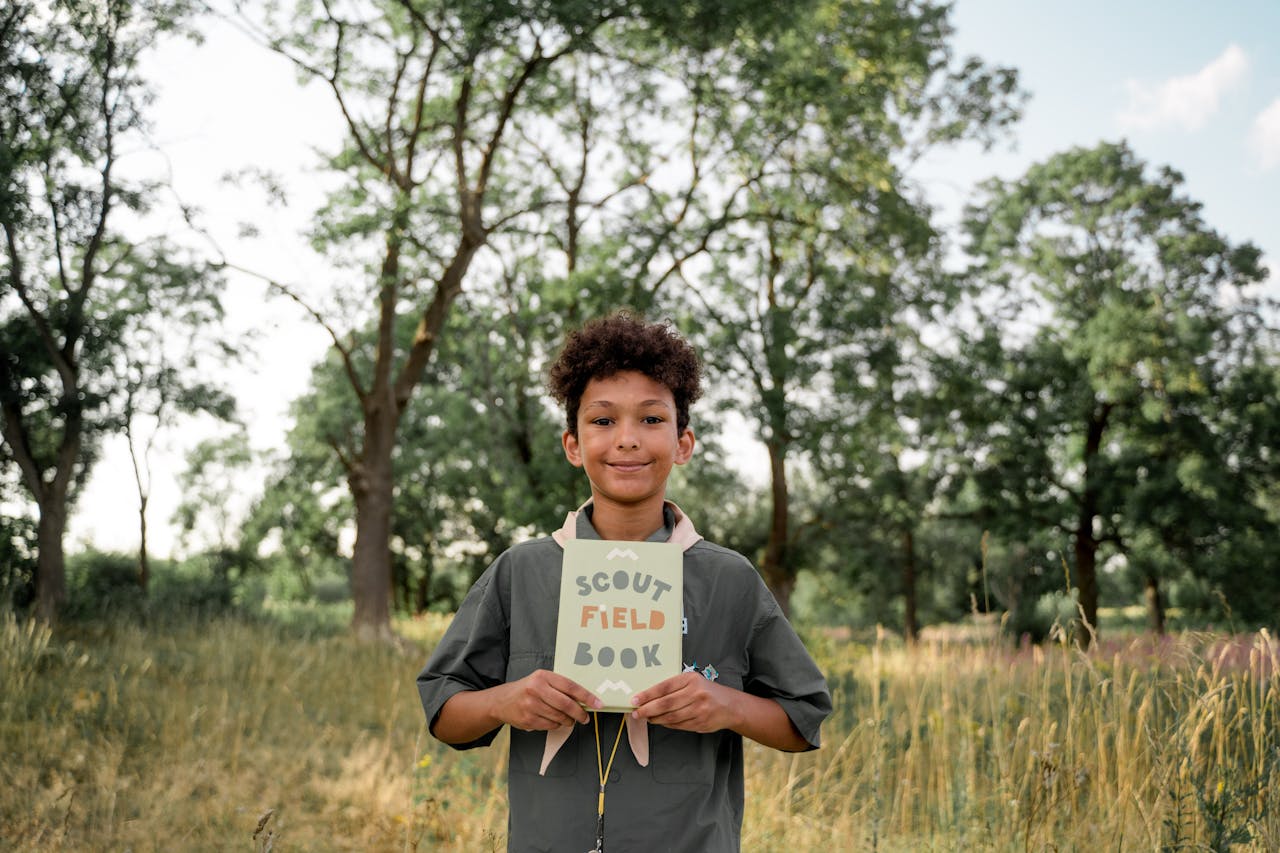The Discovery
Their Boy Scout manual didn’t cover what to do when you found a fetus along the Kishwaukee River bank. Friends Stu and Tom ask simultaneously, “What should we do?” Is this some kind of crime? Do we contact the police? They imagine a person shuffling away among fallen leaves and underbrush. As they slowly begin to move on, Tom notices something on the ground—a disintegrating copy of their high school newspaper. Stu says, “We need to tell our parents.”
During the next couple days at school, the boys bathe in their new notoriety and embellish their tale with each retelling. The news gets around fast, school abuzz with whispered rumors spread from one classmate’s ears to another’s, getting slightly altered and ending up like the final version of a game of “telephone.”
Many boys speculate about what easy girl might have been involved, and a couple are secretly afraid they could be the father. A coterie of girls share scenarios of what might have happened as they sympathize with the loss of a future life, a curled body discarded, never-to-be, on the ground like litter.
They make this about themselves when, in fact, most likely, none of them are connected to it, and the newspaper’s link to the fetus is tenuous at best. This is a break in their routine, not much more. Adults, especially their parents, confident and full of judgment, especially in this era of “free love,” whisper about this because they don’t want to think their offspring are capable of creating life. Or destroying it. Teachers are more cautious and tentative as if this event has changed some chemistry that had existed in the classroom, as if every student is potentially culpable. Could one of their students be implicated?
Between classes with Tom, Stu says, “People need to chill. What’s the big deal? My brother had to do community service and said it’s unreal what they find along the river.”
Out of nowhere, Scott Timrock, a sophomore they barely know, slams Stu’s head into the locker.
“What the fuck do you know? You ought to keep your mouth shut.”
Tom sees the trickle of blood dribbling down Stu’s face as Scott walks away as if everyone acts this way.
Tom walks with Stu to the nurse’s office where she asks Stu what happened while elegantly swabbing his cut. He mutters something about knocking his head on a locker which causes her to wrinkle her brow in doubt.
They head on to their next class, Stu holding an ice pack to his forehead. Tom ponders Scott’s behavior and what might have instigated it. By the end of the day, most have forgotten the fetus, its titillation and shock value already faded as life moves on. Always moves on. And adults make their own discovery: how not much is learned in adolescents’ lives.
No Place Like
The heavyset woman with yellowed and missing teeth yelled at Martin to get out of her way. Her breath stank like fermenting cheese and he was in the mood for an argument. Like a gang member, he felt prepared for violence to defend his turf.
“Fuck you. Nobody ever wants to come near you anyway, crack addict.”
He shoved her aside, sat under the awnings of the strip mall, and took out his sign, “Any Amount Helps!” Martin cradled his extra-large Burger King cup, waiting. He had to be here by 6 a.m. each morning to claim his spot to live in for the day. Every so often, someone shoved a dollar bill into his cup.
When he began to doze, Martin entered a half-conscious space, recalling his youth. He couldn’t call what he had had a family. He’d spent a lot of time moving around Texas with his dad, a drunk and he could barely recall his mother.
One time, some lady Martin’s dad was drinking with left her kids with him. He watched them for weeks. The place was filthy. He was ten. Martin stole cans of soup when food stamps ran out. A health department woman came to the house. She couldn’t believe… She started crying.
“Are you the little man?” she’d asked him forcing a smile.
Sitting dreamily here now, Martin had flashbacks to years of living on the streets barely surviving, aware that so many of the people now walking by him daily judged him as someone who could never have made something of himself.
The heavy older woman who’d settled on sitting next to him snapped him out of his reverie. She was more in-your-face with passersby, loudly blurting out, “I have no home. Please help.”
Martin turned to her saying, “This is your home, baby.”
The next dawn, like every dawn, he grabbed his Burger King cup, and headed out. A heavyset older woman with yellowed and missing teeth yelled at Martin to get out of her way…
